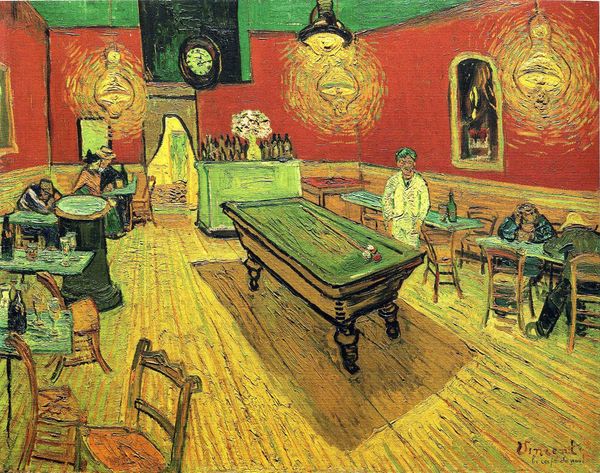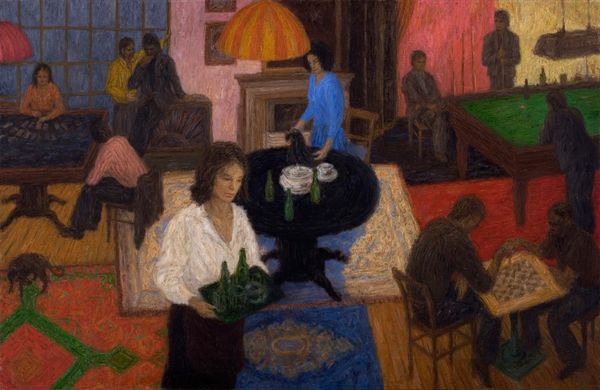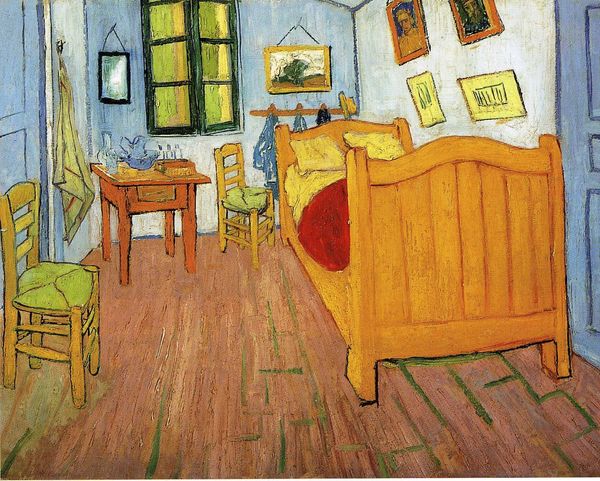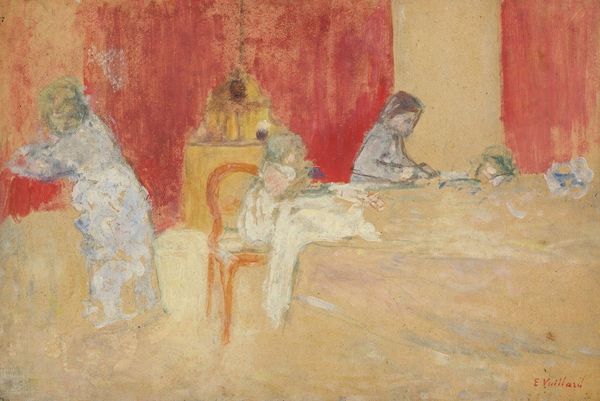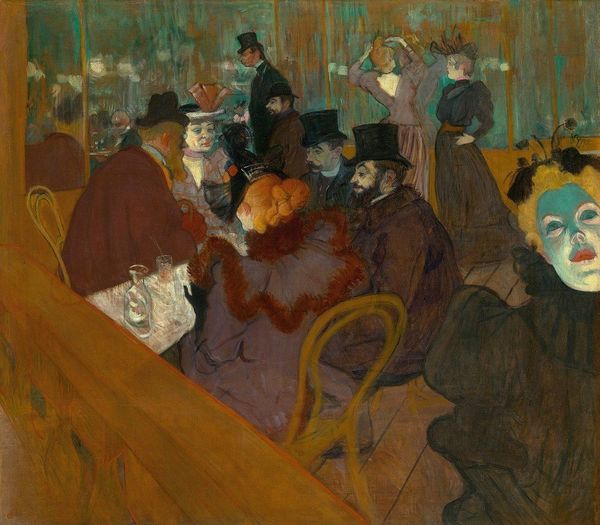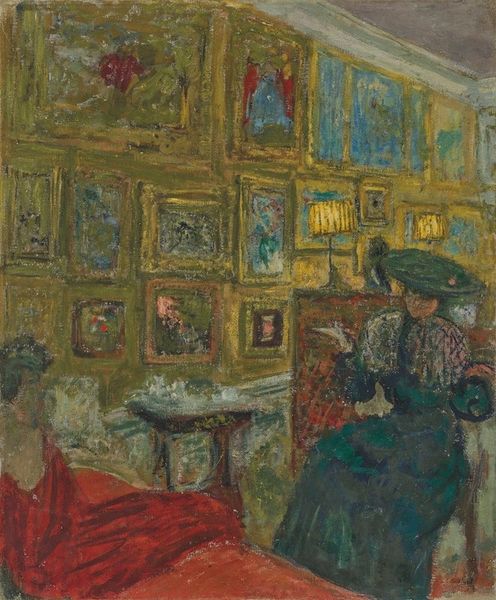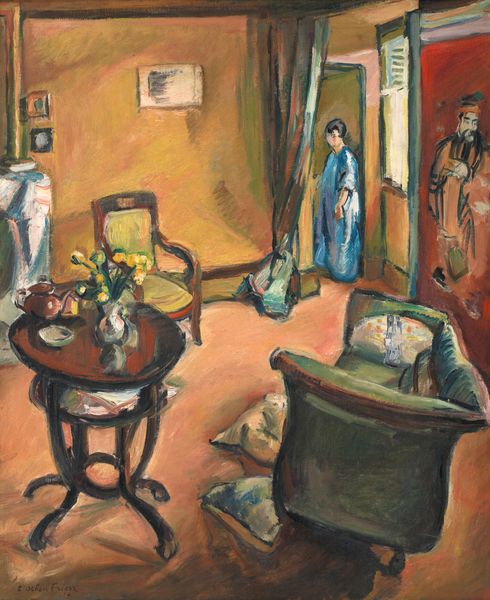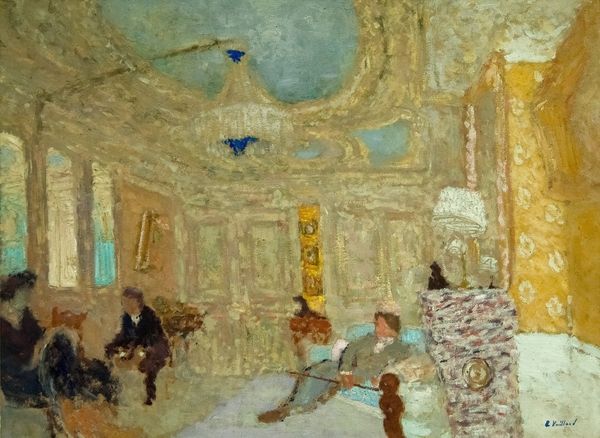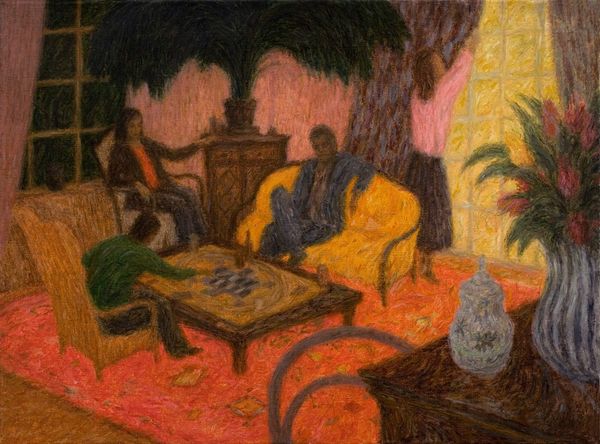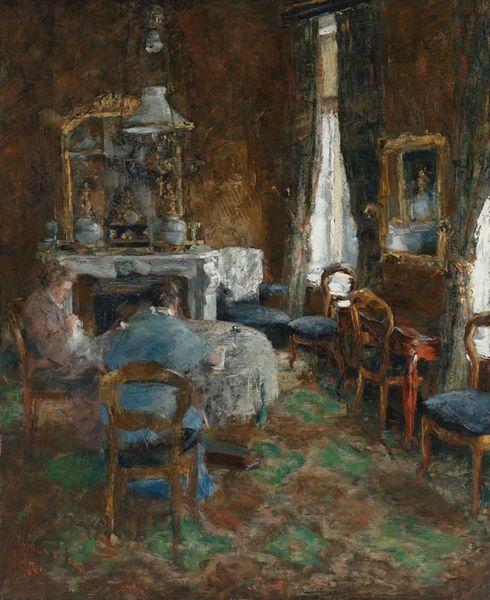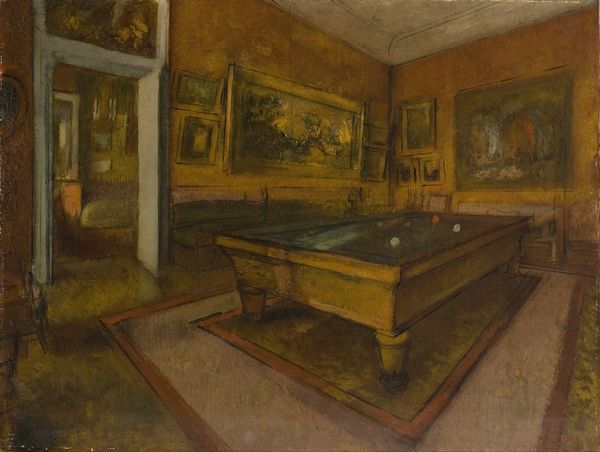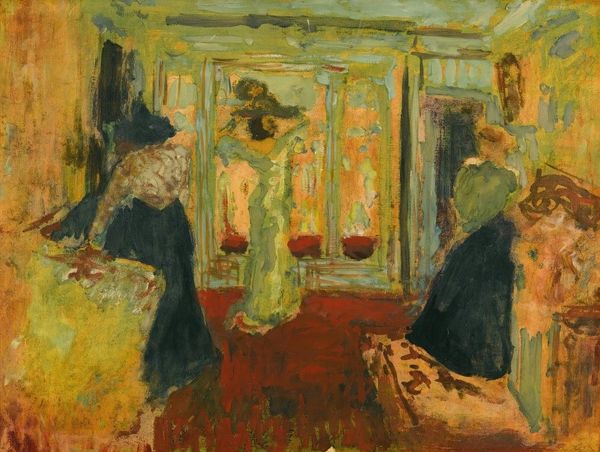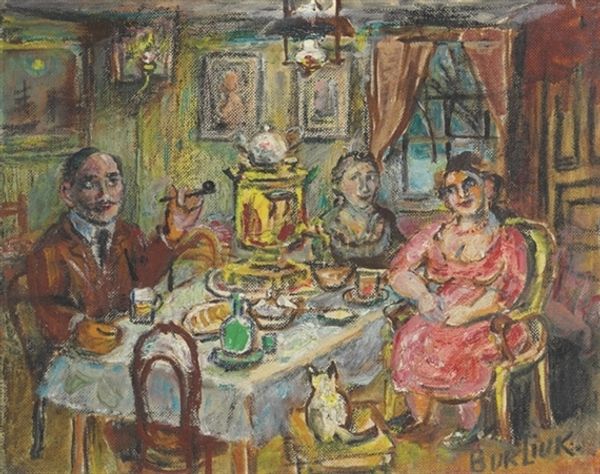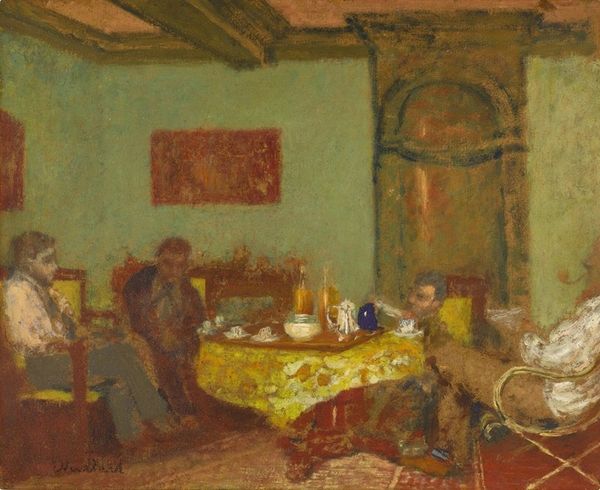
oil-paint
#
impressionism
#
oil-paint
#
oil painting
#
cityscape
#
genre-painting
#
post-impressionism
Copyright: Public Domain: Artvee
Vincent van Gogh created *Le café de nuit*, or *The Night Cafe*, in Arles, France, in 1888. It’s a scene of a late-night haunt, capturing the social space of working-class leisure, but also hinting at the underbelly of modern life. The cafe is rendered with intense, almost clashing colors – the reds and greens meant to express the terrible passions of humanity. Electric light floods the room, casting long shadows and creating an atmosphere that's both intimate and unsettling. Van Gogh uses distorted perspective, making the viewer feel as if they are stepping into an unstable environment. The painting offers a glimpse into the social fabric of late 19th-century France, a time of rapid industrialization and urbanization. Cafes like this were important social hubs, places for people to gather, relax, and escape the stresses of daily life. Van Gogh, though, shows us not camaraderie, but a scene of alienation and loneliness. As historians, we look to documents and cultural contexts to understand the complexities of an artwork. We can understand Van Gogh’s artistic intentions, and how they speak to a particular moment in time.
Comments
No comments
Be the first to comment and join the conversation on the ultimate creative platform.
